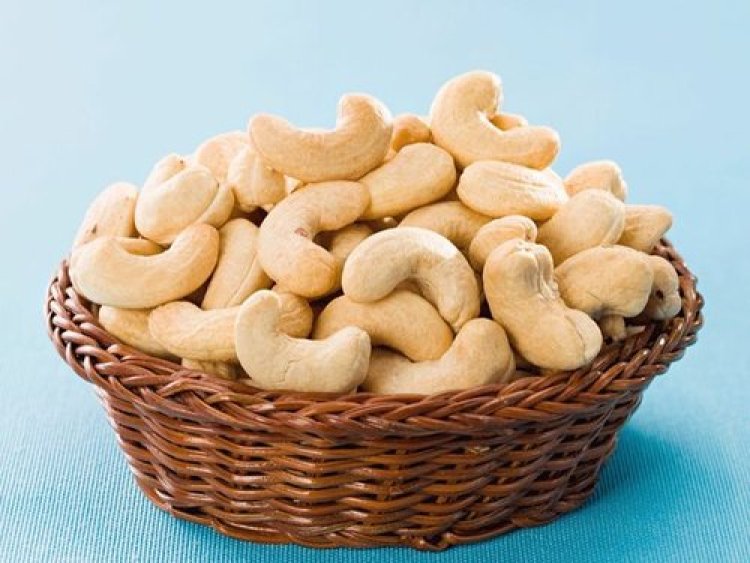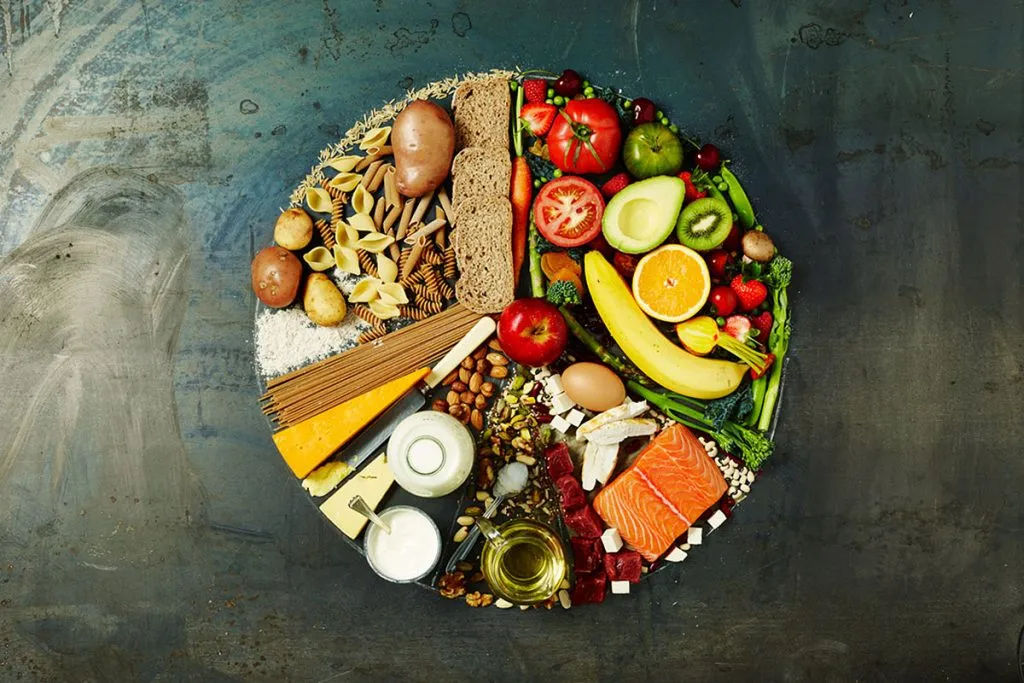Cashew is an important member of the kernel family. It is native to Brazil and South America, and the Portuguese introduced it to Goa in India. Effective from hair to toe, the benefits of cashew nuts. The ancients viewed it as a high cholesterol fare. However, a number of studies indicate that it only contains healthy cholesterol. The cashew tree is a tropical evergreen. These almonds are creamy and sweet.
Cashews can be consumed fresh, roasted, salted, or unsalted. Additionally, it can be found in a variety of dishes. Some dishes, such as curry, kheer, biryani, and even Kaju Katli, are integral to Indian traditions and celebrations. In addition, cashew nuts are used to produce alternative dairy products such as cashew milk, cashew butter, and cashew cheese.
In addition to numerous health benefits, such as aiding in the treatment of gastrointestinal and abdominal disorders, cashews promote healthy hair and skin.
In addition, this article will discuss the nutritional composition of cashews, their health benefits, and some of their potential drawbacks.

Nutritional Facts of Cashews
Like any nut, cashews are a storehouse of energy and essential nutrients. They help your body in significant ways and work towards making you a healthier individual.
One serving of cashews (28.35 grams/approx. 18 cashews) contain:
- 157 calories
- 8.56 g of carbohydrate
- 0.9 g of fibre
- 5.17 g of protein
- 12.43 g of total fat
- 1.68 g of sugar
Other Nutrients include:
- 10 mg of calcium
- 0.62 mg of copper
- 1.89 mg of iron
- 1.64 mg of zinc
- 83 mg of magnesium
- 168 mg of phosphorus
- 187 mg of potassium
- 3 mg of sodium
Apart from these nutrients, it is rich in several minerals and healthy compounds.
- Cashew is a rich source of vitamin B and C.
- They are also a great source of proteins and contain ample amounts of unsaturated fats.
- Minerals like copper, magnesium, and manganese present in cashews are essential for energy production, brain health, and immunity.
Health Benefits of Cashew Nuts
The popular cashew kernel is an excellent source of nutrients. It can ameliorate numerous health conditions. Multiple studies have demonstrated the health benefits of cashew nuts. People who ingest cashew nuts gain muscle strength. Additionally, it keeps diabetes in check. Let us take a look at a few health benefits cashew nuts in detail:
Cashews Help Maintain Healthy Weight
The healthy fats, protein, and fibre in cashews help satiate cravings and keep you feeling full for longer. As a consequence, the desire to overeat is absent. Thus, it is fair to assert that consuming cashews in moderation can aid in weight maintenance.
A study indicates that women who regularly ingest cashews have a healthier body mass index than those who do not.
Cashews Aid in Weight Loss
A study indicates that regular consumption of cashews can regulate and even accelerate weight loss. Because cashews contain Omega-3 fatty acids, they aid in enhancing the metabolism. Consequently, it aids in the elimination of superfluous fat. In addition, cashews have a high protein and fibre content with fewer calories, allowing you to feel satisfied for longer.
Cashews Lower Cholesterol Levels
Cashews contain an abundance of monounsaturated and polyunsaturated fatty acids. These compounds reduce the risk of cardiovascular disease. Moreover, cashews may reduce total cholesterol and LDL cholesterol.
A study suggests that consuming cashews on a daily basis may be a simple dietary strategy for managing total cholesterol and LDL cholesterol. In addition, consuming cashews can help reduce low-density lipoprotein cholesterol, according to the same study.
Cashews Improve Heart Health
Numerous studies demonstrate that almonds such as cashews are rich in protein, antioxidants, fibre, vitamins, minerals, and unsaturated fatty acids. These nutrients contribute to anti-cancer, anti-inflammatory, and heart-protective effects. In addition, these almonds can help control inflammation and vascular responses.
Additionally, cashews contain unsaturated fatty acids, which help regulate cholesterol levels. Consequently, it reduces risks such as stroke, cardiovascular diseases, and heart attacks.
Cashews contain fibre in addition to unsaturated lipids and proteins. Lower LDL cholesterol levels reduce the risk of cardiovascular disease. According to research, cashews reduce the ratio of LDL to HDL. It is an indicator of cardiac health.
Cashews Help Manage and Prevent Diabetes
Cashew consumption may aid increase insulin levels. They can raise good cholesterol levels and lower harmful cholesterol levels. Diabetes can reduce the risk of cardiovascular diseases.
According to research, individuals who consume a diet rich in cashews have lower blood pressure and higher HDL cholesterol. However, you may encounter the condition within twelve weeks. In addition, the same research indicates that a diet high in cashews does not increase blood glucose levels or body weight.
Cashews Improve Natural Eye Protection
As we know, the strength of our eyes deteriorates with age. However, a regular intake of antioxidants can help slow that down. Cashews contain a rich antioxidant pigment. The retina directly absorbs it. The pigment forms a protective layer on our eyes, preventing damage from harmful UV rays.
Cashews Improve Skin and Hair Health
Rich in selenium, iron, phosphorus, zinc, and magnesium, cashews are fantastic for your skin. In addition, it contains proteins, antioxidants, and plant-based compounds. As a result, they aid in maintaining healthy skin and preventing wrinkles. In addition, because they are high in antioxidants, cashews promote the growth of new skin cells, thereby preserving the skin's elasticity.
According to research, consuming cashews and applying cashew nut oil to the epidermis may stimulate melanin production. It is owing to the copper content of cashews. In addition, the oleic and linoleic acids found in cashews impart a silky sheen and enhance hair colour.
Cashews Strengthen Your Bones and Improve Bone Health
Due to their high magnesium and manganese content, cashews are beneficial to bone health. Magnesium, like calcium, is essential for robust bones. An equilibrium between the two can enhance nerve regulation and muscle conditioning.
Additionally, magnesium helps regulate calcium levels. Cashews are an exceptional source of magnesium, which improves bone health.
Cashews Improve Brain Health
These have a healthy balance of monounsaturated and polyunsaturated fatty acids. According to studies, these lipids promote brain health, improve memory, and reduce inflammation. Thus, cashews contribute to improved brain health and function.
Cashews Boost Your Gut
Cashews are rich in dietary fibre. It helps in the digestion process and also provides food for gut-friendly bacteria. As a result, it allows good gut health and prevents intestinal issues.
Cashews Help Prevent Blood Diseases
Cashews are rich in copper. It combats any infection and maintains your immune system. In addition, copper and iron help the body prepare red blood cells.
Proper Ways to Consume Cashews Nuts
By consuming cashews properly, you can replenish your body with large quantities of vitamin K, vitamin D, vitamin B6, phosphorus, zinc, and iron.
Remember that the morning is the optimal time to consume pistachios or any other type of nut. It is ideal to consume almonds with breakfast. It can help you combat fatigue and maintain healthy blood pressure levels.
Cashews should be soaked before consumption. Soaked cashews acquire a velvety texture, making them simple to incorporate into recipes. Additionally, hydrated cashews are more nutritious. Soaking nuts eliminates phytic acid and makes them simpler to digest.
Raw nuts are extremely nutritious, but they may contain hazardous bacteria. Alternatively, roasted nuts may contain fewer antioxidants and vitamins and may be devoid of certain beneficial fats.
Healthy Recipes
While it is easy to eat raw cashews, they can become monotonous soon. However, these recipes are healthy and have a fun twist to them. In this way, you can include cashews in different styles in your diet.
Cashew Nut Chikki
Ingredients:
- Cashew nuts – 250 grams
- Sugar or jaggery – 250 grams
- Ghee – 2 tsp
Method
- Split the cashew nuts equally.
- In a frying pan, heat one tablespoon of Ghee.
- Add sugar, and stir; allow sugar to melt on a high/medium flame.
- Stir continuously so that the syrup does not stick at the bottom.
- When the sugar dissolves completely, turn off the heat.
- Add the cashew nuts and mix well. Grease a plate or flat surface, pour the cashew nut mixture on it,
- Grease a rolling pin with Ghee, and flatten the mixture to your preference.
- You can cut the Chikki into any shape you desire while it’s still hot.
- Once it cools, you can break it with your hands into desired shapes.
- Cashew nut Chikki is ready to satisfy your sugar tooth and snack craving.
- For longer shelf life, store it in an airtight container.
Cashew Butter
Ingredients
- Cashew nut
- Oil (coconut or avocado oil)
Method
- Roast the cashews at 350 degrees F for 10 to 15 minutes.
- Shake the pan while roasting so that they brown evenly.
- After you roast the cashews, keep them for cooling.
- Take a food processor, add the roasted cashews and give it a pulse.
- Remember, you should powder the chunky nuts completely.
- After a couple of minutes, the nuts release the oil, making the mixture clump together.
Homemade healthy cashew butter is ready to be added to your healthy snack list.
Potential Downsides of Cashews
We know that cashews are a storehouse of great nutrients and have immense health benefits. But, there are some possible downsides to their consumption.
- Unprocessed raw cashews can be risky to consume as they can be toxic. Furthermore, their consumption may lead to skin reactions. Thus, it is best to choose dry roasted or raw cashew varieties.
- Cashew nuts also contain phytates. Therefore, it can be troublesome for your body to absorb the minerals and vitamins. However, Soaking nuts can reduce the phytate content.
- People allergic to tree nuts can be allergic to cashews too.
- Cashews have a noticeable amount of oxalic acid. If not consumed in moderate amounts, they can pose an issue for kidney ailments.
Harmful effects of cashew nuts include:
- Bloating
- Constipation
- Weight gain
- Joint swelling
But these side effects occur rarely.
Applying unroasted cashews to the skin may lead to:
- Skin irritation
- Redness
- Blisters
Also read: Health Benefits of Cashews
Summary
In fact, cashew nuts are an incredibly nutritious food that offers fantastic health advantages. These kidney-shaped almonds may treat ailments ranging from the heart to the digestive tract. Moreover, cashews provide the necessary nutrients when consumed regularly.
If adequately stored in an airtight container, cashews can be enjoyed throughout the entire year. Remember that excessive amounts of everything are detrimental. Consequently, you should monitor their consumption. Otherwise, these scrumptious, creamy almonds are the best option.














